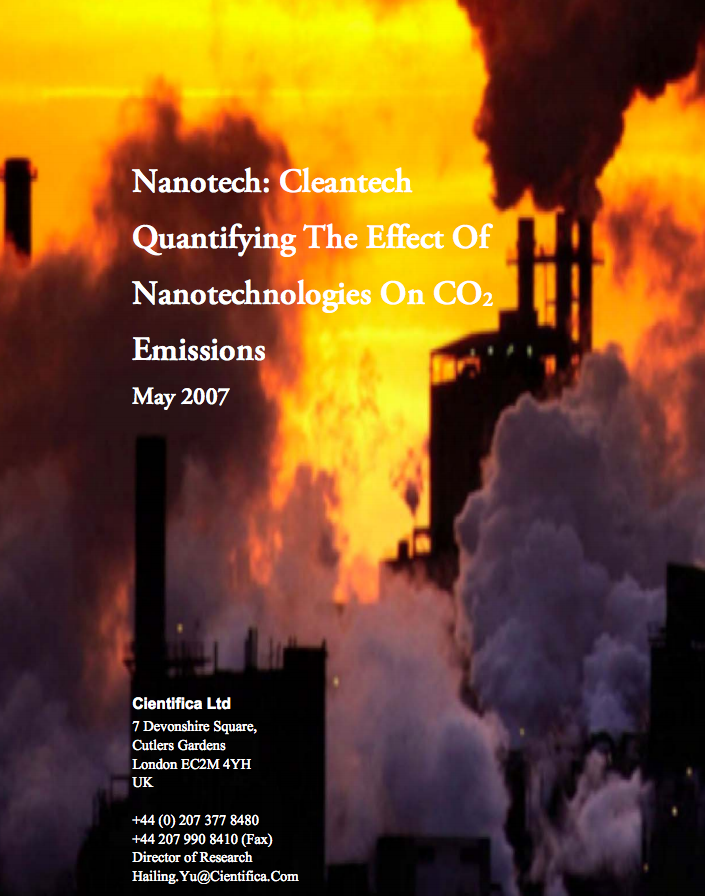Tim Harper is a serial entrepreneur and investor in emerging technologies. A former engineer with the European Space Agency’s R&D center (ESTEC) in Nordwijk, the Netherlands. He has built a twenty-five year career on identifying, understanding and acting on technology trends, from instigating and managing development projects to investment and eventual commercialization of micro- and nanotechnologies. This has been complemented by my work in assessing and addressing the societal challenges created by the development and governance of emerging technologies such as nanotechnology, synthetic biology, regenerative medicine and geoengineering.
He has instigated research, commissioned, written and published highly cited reports on the economic potential of nanotechnologies and life sciences at Cientifica, the World Economic Forum and World Gold Council. In the last decade organized nanotechnology conferences and training sessions in the EU, US, India, Japan, Singapore, South Africa and Iran. I have provided strategic advice to government programs in Singapore, Austria, Spain, Saudi Arabia, South Africa, and Abu Dhabi.

:: What exactly is Cientifica?
Cientifica started off as a spin out from the European Space Agency in 1996, helping solve difficult problems in materials analysis, much of which involved working on the nanoscale. As nanotechnology progressed we moved more into consulting, intelligence and events such as the Spanish Trends in Nanotechnology conferences which I founded. Currently we work much more on a strategic level, helping clients develop strategies to take advantage of a range of emerging technologies, from life sciences to materials. At the same time through our Cientifica+ subsidiary we build and market emerging technology companies.
:: Nanotechnology seems to be a bit like oxygen: it’s present on our lives but we are not aware of it. Do we need nanotech to progress?
Materials have always shaped our culture and economy, whether the bronze or iron ages giving us improved tools for everything from warfare or agriculture to our modern mastery of silicon and polymers. Nobody remembers the physics behind the invention of the transistor for example, but that influences almost every aspect of our daily lives. So just because people are unaware of a technology doesn’t stop it from being useful.
However most of these have been top down technologies, that is to say we dig up a material and force it to do something it doesn’t want to do, creating a lot of waste and expending a lot of energy in the process. Nature doesn’t work like that, and neither does nanotechnology, rather we start at the atomic scale and work our way up, a trick that nature has used for billions of years to create exactly what is needed to do the job, for example DNA to store information, or neurons to process it. In almost every case the bottom up solution is more efficient, both in terms of functionality and energy use, than its top down equivalent.
:: Which have been the main historical hits of nanotech?
It is clear that understanding how nature actually works by being able to look at nanoscale processes and replicate them is having a major effect in fields from materials to medicine. While nanomaterials have changed almost every industry, from IT to pharmaceuticals, perhaps the biggest ‘hit’ has been in bring together teams from different disciplines under the same roof. If you visit any nanotech facility you will find physicists, chemists, biologists, and engineers all working together, not scattered around a university campus in different buildings. This allows us to use the whole of science to solve problems, not just one facet.

:: And which are the biggest coming trends in the future?
Graphene is obviously attracting a lot of attention at the moment, but my advice is not to get seduced by the fancy future applications and concentrate on near term opportunities in composites, paints and coatings. They may not be as attractive to the media as flexible phones but they will generate cash much faster.
For me the most exiting trend is the combination of nanotechnology with life sciences and information technologies. Combining smart medical diagnostics with big data has the power to put the entire sum of medical knowledge at the fingertips of any doctor, anywhere in the world. As part of my work with the World Economic Forum we just published a list of our top ten emerging technologies which gives a few pointers to what we think will change the world.
:: Has the discipline been hurt by the crisis?
We have been looking at nanotechnology at a research level for almost 15 years, so the funding cuts to basic science and the push towards more applied (or translational) work has probably arrived at the right time for nanotechnologies. There is also much more take up from industry, or at least the ones with the ‘innovate or die’ philosophy, as companies seek new technologies to differentiate themselves and maintain margins in a stagnating market.
:: Is there anything special and characteristic about the firms involved in nanotech R&D?
There is no difference between nanotech and any other sector I have worked in. Companies that can identify and address a market need will do well, whereas those that simply push technology into the market will always struggle.
:: Are there noticeable differences between US and EU firms in your sector?
I think everyone is struggling to get technology businesses off the ground these days. Science based businesses tend to take rather longer, and are perhaps riskier in terms of capital invested than, for example, social media businesses which rely more on marketing than R&D.
:: One of our biggest challenges is how to direct private resources to R&D activities, given the high risk they suppose. Which are the main barriers Europe faces in order to attain a greater technologic and knowledge leadership?
Good companies innovate, and ones that don’t tend to die. That is very different from spending huge amounts on R&D, which has no correlation with company performance. As we move towards an open innovation ecosystem more and more R&D is being performed at the interface between academic institutions and start-ups, and that’s the sector we need to stimulate.
Given that the returns on most asset classes are still poor, entrepreneurs are one of the few places where some wisely invested cash will give a decent return. Imagine what would have happened if governments had refused to bail out the banks and put the cash into technology, entrepreneurs and small businesses instead? We would have lost some of it, but at least there would be some chance of getting some of it back, creating jobs and stimulating the overdue reinvention of the economy.
:: Spain is suffering its worse crisis in its short democratic history, and there’s been cuts on R&D budget expenditures. Some say that we don’t need to spend more, but to spend better. Is there a relation between public R&D expenditures and the scientific and economic progress of a country?
Our entire economic history has been based on technological innovation, something that countries like China and the US are very much aware of. The problem for Spain is that it is easy to make cuts whose effects will not be felt until several more elections have taken place. Cutting science funding now will have little immediate effect, but you have to ask why other countries are not doing it. It is the equivalent of selling one of the wheels of your car to buy gasoline.

:: If you had to say 5 fundamental aspects to improve the creation of knowledge in firms, which would they be?
One of my roles is as a catalyst in companies, helping them break out of old cultures and take advantage of a more innovative approach. One of the first things I do is to talk to the people who actually do the work, not the managers and directors, but the people who work the machines, deal with the public or work in the lab. That allows me to avoid all the management jargon and understand how things get done. If there is one thing I see again and again it is the failure of management to make use of their best resource – the people they hire.
So often companies are blind to the knowledge that they already possess, and taking a fresh look at what they do and how they do it can allow some rapid and effective changes to me made, especially if you can capture that knowledge and share it among the people who need it.
Thirdly I’m looking for ambition – recklessness will produce the same end result as over caution – failure – but good companies always have some idea of where they want to go, and this has to go beyond a bland mission statement.
Being open is another key issue – it is too easy to focus on your technology or your market sector and be unaware of other threats or opportunities. Going out and doing something different every now and then can really help with company vision.
Finally, develop a good network, read everything, meet everybody and make sure you listen. Many of the best opportunities come from discussions in coffee shops, restaurants and bars rather than the board room.
:: In your World Economic Forum doc, you state: “there is a growing gap between the generation of new knowledge and our ability to use it effectively”. Why does this gap exist and how can we solve it?
We are just doing more and better science and there are more scientists than ever before in the history of the human race, but less and less of it seems to be getting effectively commercialized, why? This is partly due to the disconnect between advanced science and the every day experience of decision makers such as politicians. There seems to be a feeling that science just happens. But as it gets tougher and tougher to form start-ups and early stage companies, more and more good technologies are left sitting on the shelf.
There are two things we can do to change the situation. Firstly, as we discussed, we need to find ways to stimulate the creation of early stage science based companies. This is where innovation happens and these are small companies that will be acquired by the big companies that have lost the ability to innovate but nonetheless have access to markets.
Secondly we need to introduce a bit more longer term thinking into government – understanding how technology can help us get to where the economy, or equally important, society needs to be in 10 or 20 years in order to remain competitive. It is no good waiting until a crisis happens, whether that is much talked about demographic timebomb of an ageing population or a natural disaster, and then expecting a quick fix to be available.
:: What’s happening with globalization and the dispersion of R&D centers? Are they becoming more concentrated or are they spreading around?
One of the benefits of globalisation is that you don’t have to be in a specific location any more, you simply have to be world class. Initiatives which I work on, such as the Madrid-MIT medical imaging program M+Vision, illustrate how you can now create multidisciplinary research and innovation initiatives which, in this case, make best use of the skills of both MIT and the various universities and hospitals in the Comunidad de Madrid.
:: What is the EmTech Index? What are its fundamental variables?
Cientifica’s Global EmTech Index is compiled from data generated by the WEF’s “The Global Competitiveness Report” and you can find a full explanation here https://www.cientifica.com/consulting/emtech-index/
The index looks at factors such as quality of scientific institutions, support for early stage technology companies, amount of university-industry interaction and domestic market size to get an idea of the quality of the emerging technology ecosystem.
It is important to note that the survey only provides information on a national level, meaning that the advantages of Silicon Valley or Route 128 will be counterbalanced by less competitive regions of the US, and coastal China is counterbalanced by it’s rural interior.
:: Which position does Spain achieve in EmTech Index? What would you say Spain needs in order to gain positions?
Spain is somewhere around Costa Rica or the Czech Republic in our rankings, but you don’t need the EmTech index to see that Spain is rather different from the US. One of the historical challenges for Spain is to interest Spanish companies in innovating, not just reselling foreign technology. Improving translational research in universities would be a good start.
 :: There’s a lot of talk about the relationship between Universities and the private sector. According to your experience, what do we need to build a good relationship between both worlds?
:: There’s a lot of talk about the relationship between Universities and the private sector. According to your experience, what do we need to build a good relationship between both worlds?
A lot of it comes down to attitude. Businesses and academics are motivated by entirely different things, and it’s amazing how many people on either side of the divide don’t understand this simple fact. However the old attitude in Spanish universities that we’re here to do science and we don’t have to answer to anybody is changing, partly as a result of budget cuts and partly because of the rise of the new generation of much more open, international and entrepreneurial scientists. Change takes time, but the good news is that it is happening.
:: What’s the role of emerging markets in the R&D activities? Can we also talk about ‘emerging technologies’?
Emerging markets are both an opportunity and a threat. Well there are increasing numbers of middle class consumers in India, China, across Asia and increasingly in Africa, the resources required to meet this demand have the potential to create an ecological catastrophe. It is however an avoidable problem, and one that technology, especially materials and nanotechnologies, should be able to help us avoid or at least mitigate. After all, these extra people only exist because of our ability to provide health care and food and energy. All of which is only possible through the application of what was once emerging technologies.
We define Emerging Technologies as those that: • Arise from new knowledge, or the innovative application of existing knowledge; • Lead to the rapid development of new capabilities;• Are projected to have significant systemic and long-lasting economic, social and political impacts; • Create new opportunities for and challenges to addressing global issues; and • Have the potential to disrupt or create entire industries.
:: Do you believe in government intervention to improve the innovative business ecosystem?
I’m a firm believer in using public government funding to get a company as far as you possibly can without having to give up equity to investors and venture capital firms. The key initiatives vary depending on your location but there are always a number of local regional national or even European commission funding programs that allow you to take a technology and a little further down the road market. The closer you get to the customer, the easier you’ll find it to raise the money to turn that technology into a great product great company.


1 Comentario
Good day! This is my first comment here so I just wanted to give a quick shout out and say I truly enjoy reading your articles. Can you suggest any other blogs/websites/forums that deal with the same subjects? Thank you so much!